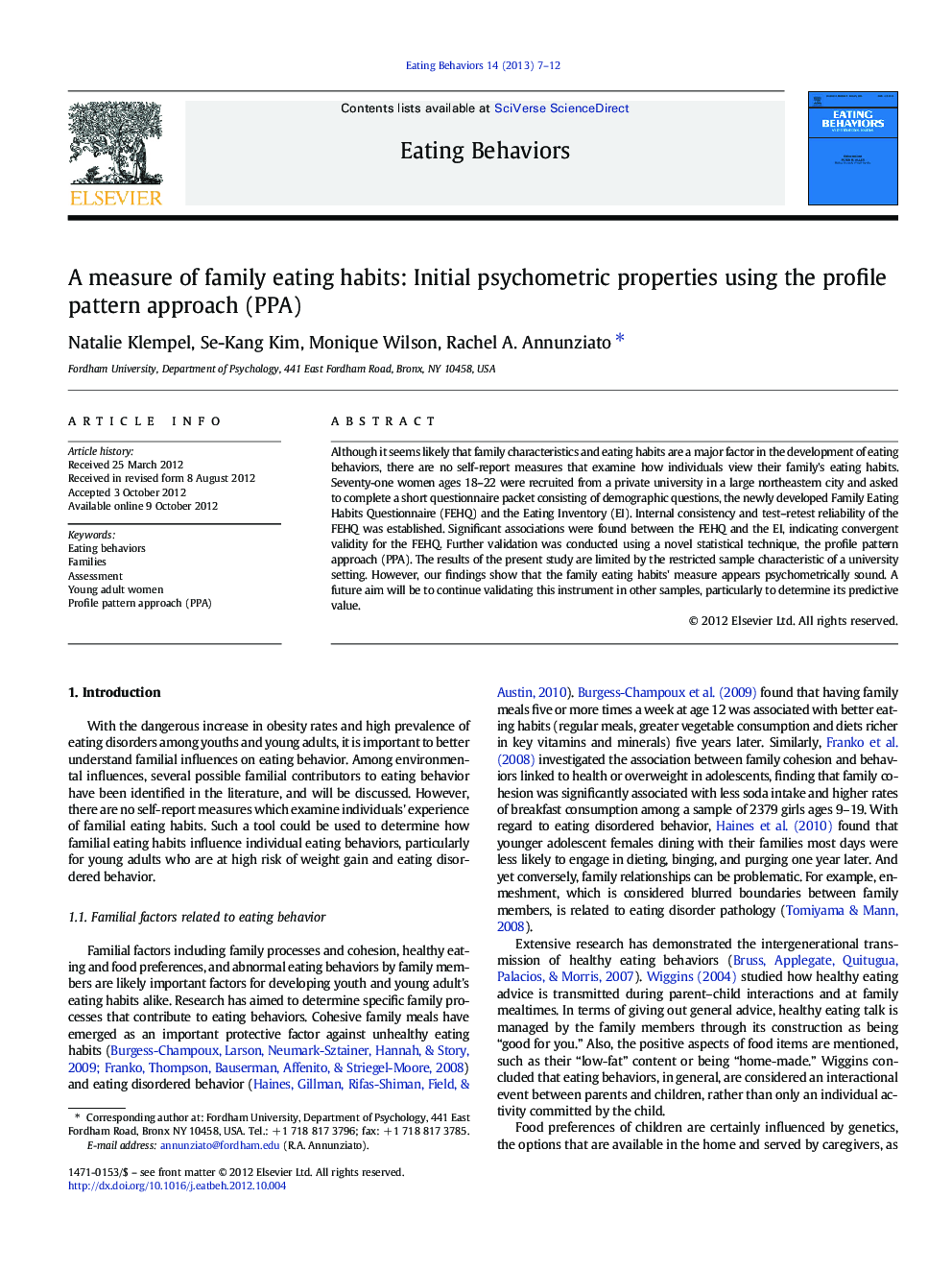| Article ID | Journal | Published Year | Pages | File Type |
|---|---|---|---|---|
| 906546 | Eating Behaviors | 2013 | 6 Pages |
Although it seems likely that family characteristics and eating habits are a major factor in the development of eating behaviors, there are no self-report measures that examine how individuals view their family's eating habits. Seventy-one women ages 18–22 were recruited from a private university in a large northeastern city and asked to complete a short questionnaire packet consisting of demographic questions, the newly developed Family Eating Habits Questionnaire (FEHQ) and the Eating Inventory (EI). Internal consistency and test–retest reliability of the FEHQ was established. Significant associations were found between the FEHQ and the EI, indicating convergent validity for the FEHQ. Further validation was conducted using a novel statistical technique, the profile pattern approach (PPA). The results of the present study are limited by the restricted sample characteristic of a university setting. However, our findings show that the family eating habits' measure appears psychometrically sound. A future aim will be to continue validating this instrument in other samples, particularly to determine its predictive value.
► We describe the development of the Family Eating Habits Questionnaire (FEHQ). ► Initial psychometric properties of the FEHQ are presented. ► A novel statistical approach, profile pattern analysis, is used to validate the FEHQ. ► The FEHQ demonstrates good psychometric properties among young adult women. ► The possible utility of the FEHQ in clinical settings is discussed.
